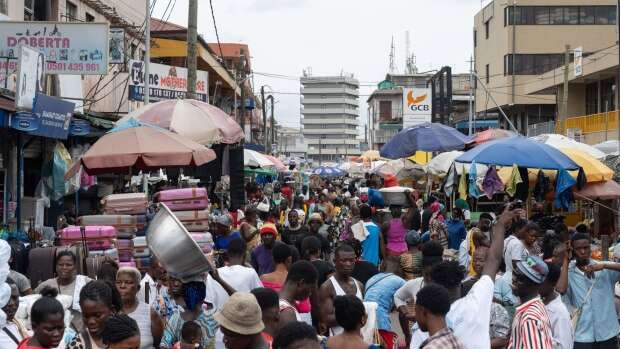Formalising Informal Sector Critical to Accessing Patient Capital, Boosting Value Addition – CERPA Director
Executive Director of the Centre for Economic Research and Policy Analysis (CERPA), Ebenezer Amankwah-Minkah, has emphasised the need for Ghana to strengthen regulatory and institutional frameworks governing the informal sector to enable access to long-term or patient capital and support industrial transformation.
Speaking during a panel discussion at the 14th Ghana Economic Forum (GEF) held in Accra on Wednesday, October 29, 2025, on the theme “Currency Stability – A Reset for Sustainable Economic Growth”, Mr Amankwah-Minkah noted that the informal sector dominates Ghana’s entrepreneurial landscape and must be prioritised in efforts to expand access to finance and drive sustainable growth.
“The informal sector dominates in this country in terms of the entrepreneurial landscape. So if we are talking about accessing funds, we need to really look at the informal sector, they do more,” he said.
The CERPA Director referenced Ghana’s Gold Board and earlier export frameworks such as the Letters of Commitment (LOC) regime as examples of successful structures that sought to regulate and retain export earnings within the country. He, however, cautioned that despite these systems, smuggling and non-compliance persist, undermining their intended impact.
“Even before the Gold Board, there was a structure that enforced bringing 80% of export proceeds back to Ghana. The only difficulty was that people were smuggling. Gold is not cocoa, you can easily smuggle it,” he remarked.
Mr Amankwah-Minkah stressed the importance of supporting small-scale and informal sector operators under umbrella bodies that can help formalise their operations and improve access to structured financing.
“A tier-two aggregator in Tapa cannot easily access finance from the Ghana Stock Exchange. But if he’s under a body with proper structures, then he can easily access patient capital,” he explained.
He also called for a coordinated approach to leverage opportunities under the African Continental Free Trade Area (AfCFTA) by restructuring Ghana’s economy away from raw material exports toward value addition.
“If we restructure our economy from being raw material-based to a value-added economy, this conversation doesn’t just go to the EU or China but remains within ourselves. However, we’re struggling because of border taxes. It’s more expensive to send goods to Nigeria than to Europe,” he lamented.
Mr Amankwah-Minkah further identified non-tariff barriers, high transport costs, and compliance with international standards as persistent obstacles to Ghana’s export competitiveness. He argued that overcoming these would make it easier to attract both local and foreign investors seeking credible and efficient value chains.
Turning his attention to government’s proposed 24-hour economy policy, he cautioned that while the initiative is well-intentioned, it must be grounded in rigorous research and evidence-based planning to avoid implementation pitfalls that have undermined past programmes.
“The 24-hour economy is a good policy, but we need a lot of research and evidence to drive it. We’ve had excellent policies with poor implementation because there was no infrastructure or proper planning. Without research, policies have no lifeline,” he warned.
He concluded that achieving sustainable transformation requires an overhaul of Ghana’s economic structure through value addition, research-led policymaking, and an inclusive financial system that integrates the informal sector into the formal economy.
“We keep sending gold out, but it’s not jewellery; we send cocoa beans, but it’s not chocolate. All this is because of the market. When we get it right, we can access patient capital and grow from within,” he stated.








